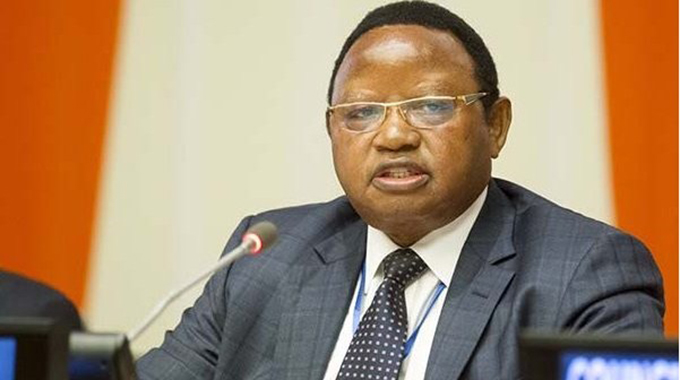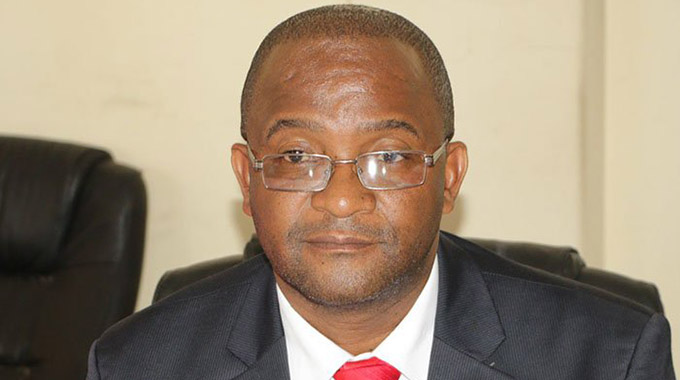Editorial Comment: Foreign affairs thrust bears fruit

Zimbabwe’s diplomatic thrust under the Second Republic, of stressing economic issues and engaging everyone as a friend or potential friend in the least confrontational way, has been bearing fruit and everyone will welcome the enthusiasm that new Foreign and International Trade Minister Ambassador Frederick Shava has shown in wanting to intensify these efforts.
Already our older friends, and in our desire for better relations with others we have not been neglecting them, take us more seriously as the sort of country that encourages and protects foreign investments by their nationals, that opens doors to mutually beneficial trade, and, importantly, pays its bills in commercial deals.
The recognition of Zimbabwe as a place where you can do profitable business has already seen significant inward investment: the choice of Zimbabwe by China’s top private steel producer as the site of its regional mills; the huge investment by a Russian mining company to open the next big platinum mine; the continued investment by South African-based mining concerns.
These are commercial decisions taken by businesspeople who are unlikely to be all that impressed by political rhetoric.
They possibly made political checks, and were reassured that, yes, the Government in Zimbabwe is serious about the promises it has made and, yes, will deliver on its side of any agreement.
Being political friends is all very well and can be useful, but in the end, before orders are placed or money is spent, a businessperson wants to know how “sound” and stable the potential market is. Zimbabwe has been delivering.
As President Mnangagwa noted last week, relations with the European Union and its member states have been improving fast and are now on a far more businesslike basis. Almost all sanctions by the EU have been dropped — we might find it hard to buy European arms, but then we are not wanting to do that — and our relations range from civility upwards.
This will mean that European businesses will not feel nervous or hampered by entering into trade or investment deals with Zimbabwean companies.
They can make their decisions on commercial grounds, without worrying about political fall-out. Again Zimbabwe and its commercial sectors need to deliver on what they agree to, but at long last that is the crucial test, and one we can pass.
We still have problems with American sanctions and to some extent with British sanctions, although in both cases rhetoric is diminishing. These are serious.
The basic sanctions are not the “targeted” ones, but rather the general financial impediments that make it so difficult to engage American banks and international financial organisations.
While our relations with the international financial organisations have been improving rapidly and dramatically, the fact remains that Zimbabwe’s voting power when decisions are made is very small and the American vote is easily the largest, and will not be cast in Zimbabwe’s favour at the moment.
Post-Brexit Britain has been normalising relations. The trade agreement signed a few months ago might not be that dramatic, but it does pass a message to British businesses that they can deal with Zimbabwe openly and that is a major gain.
Even American investors have been moving into Zimbabwe, as have Australian companies, and have in fact been helping to sell us a safe investment destination.
So at the business level the political differences are not a major impediment, although at the financial level they are.
Minister Shava this week was very keen on seeing Zimbabwean diplomatic staff and missions upgraded in their ability to open ever more commercial doors.
Here our main business organisations, and especially the Chamber of Mines, the Confederation of Zimbabwe Industries and the tourism organisations could play a larger role.
Business input needs to be through such organisations, because while the Government can take the lead in selling Zimbabwe, it cannot sell a particular company.
But the organisations can support Government efforts by ensuring that diplomats and missions have all the information they need, have contacts they can consult when needed, and have people they can call on when necessary.
The organisations need to take advantage of the fact that foreign missions are there to help Zimbabweans, as well as to represent the Government, and use them more. This includes the diaspora community, that Minister Shava sees as a large and largely untapped resource.
Diplomatic missions should be encouraging Zimbabweans living abroad to regard their local embassy as a friendly point of contact, even as a home away from home.
We see this with some of the most successful foreign embassies in Zimbabwe. They know who their nationals living here are, they know about business dealings by their nationals, they provide advice as well as renewing passports.
Then there is the attitude of opposition politicians. President Mnangagwa was seriously concerned, and puzzled, why some opposition leaders want to so trash their own country that they fly to the US to support sanctions instead of contributing to the development of Zimbabwe and arguing, as fiercely as they wish, about what are the best policies to achieve that development.
One reason for these attempts to do Zimbabwe down might be that some in the opposition do not have much else to offer.
Normally a political party that controls most urban councils in a country would be competing on efficiency and achievements, showing, for example, how wonderful Harare was compared to the rest of the country.
That obviously is not an option, the state of the capital city being the biggest millstone round the opposition’s neck, and possibly explains why some want to bring the rest of the country down to the same level.
But responsible opposition leaders could do a lot more to advance national interests without hiding their differences with the Government and wanting changes.
Opposition parties in other countries manage that well, savaging their Government at home and in their parliament, but pushing national objectives abroad.
We started seeing signs of this recently in Zimbabwe when the leader of the opposition in Parliament, Senator Douglas Mwonzora, supported the national response to Covid-19, but is still grilling Ministers hard when they appear in the Senate and casts his vote in the Senate as he sees fit.
So it is not impossible to be both constructive and to oppose. That now needs to be taken a step further on the foreign front. At home we might be in different political camps. Abroad we should be Zimbabweans.










Comments